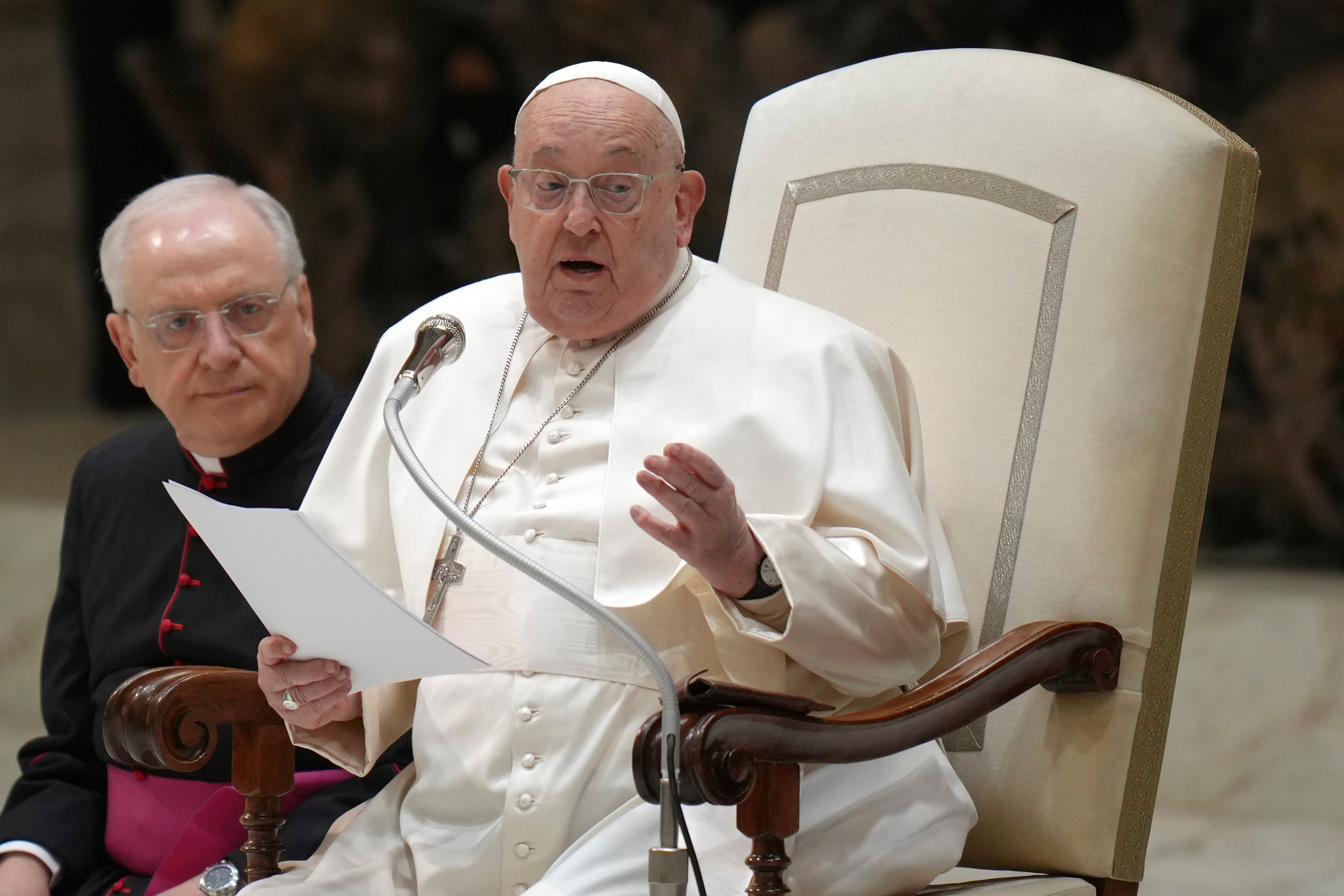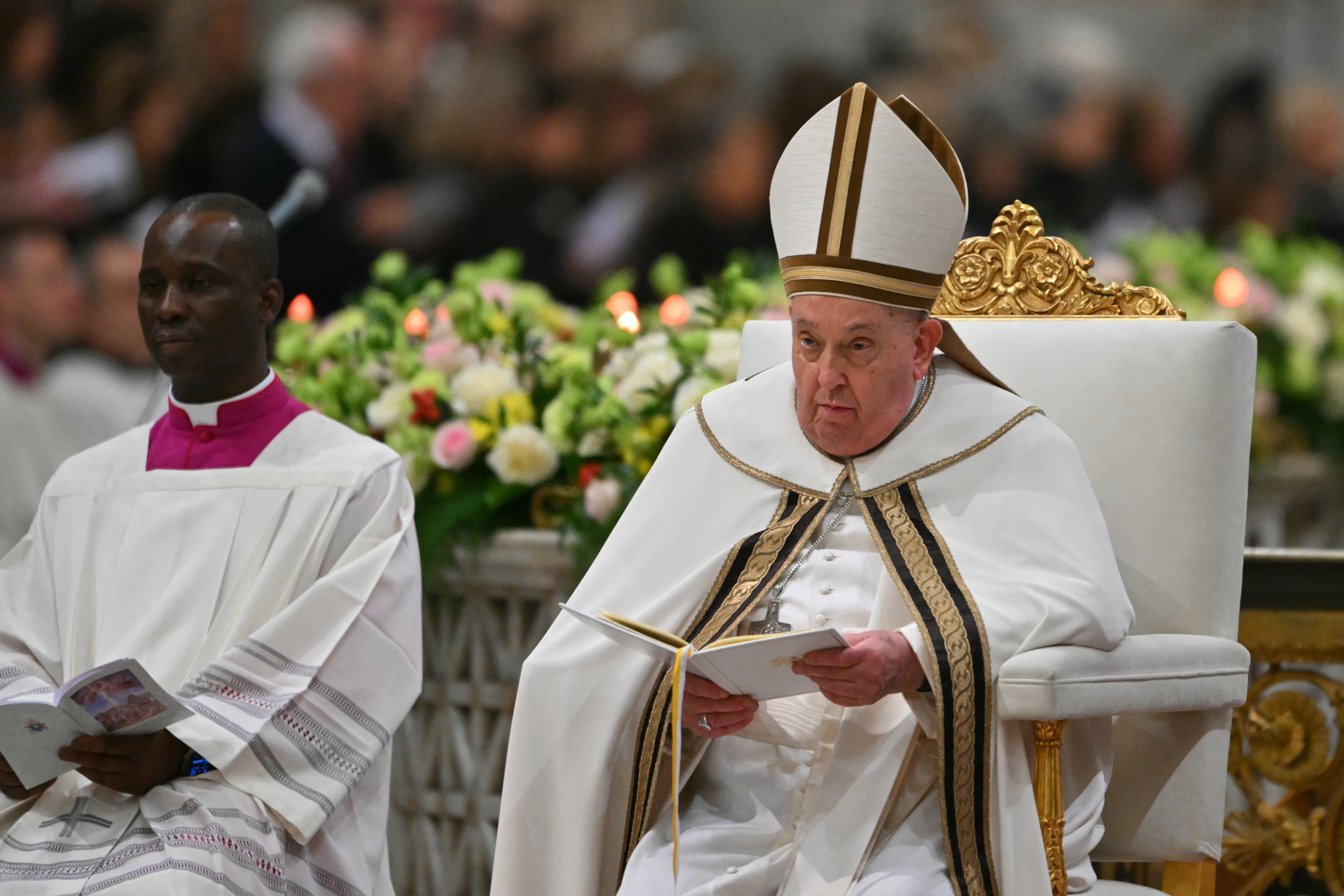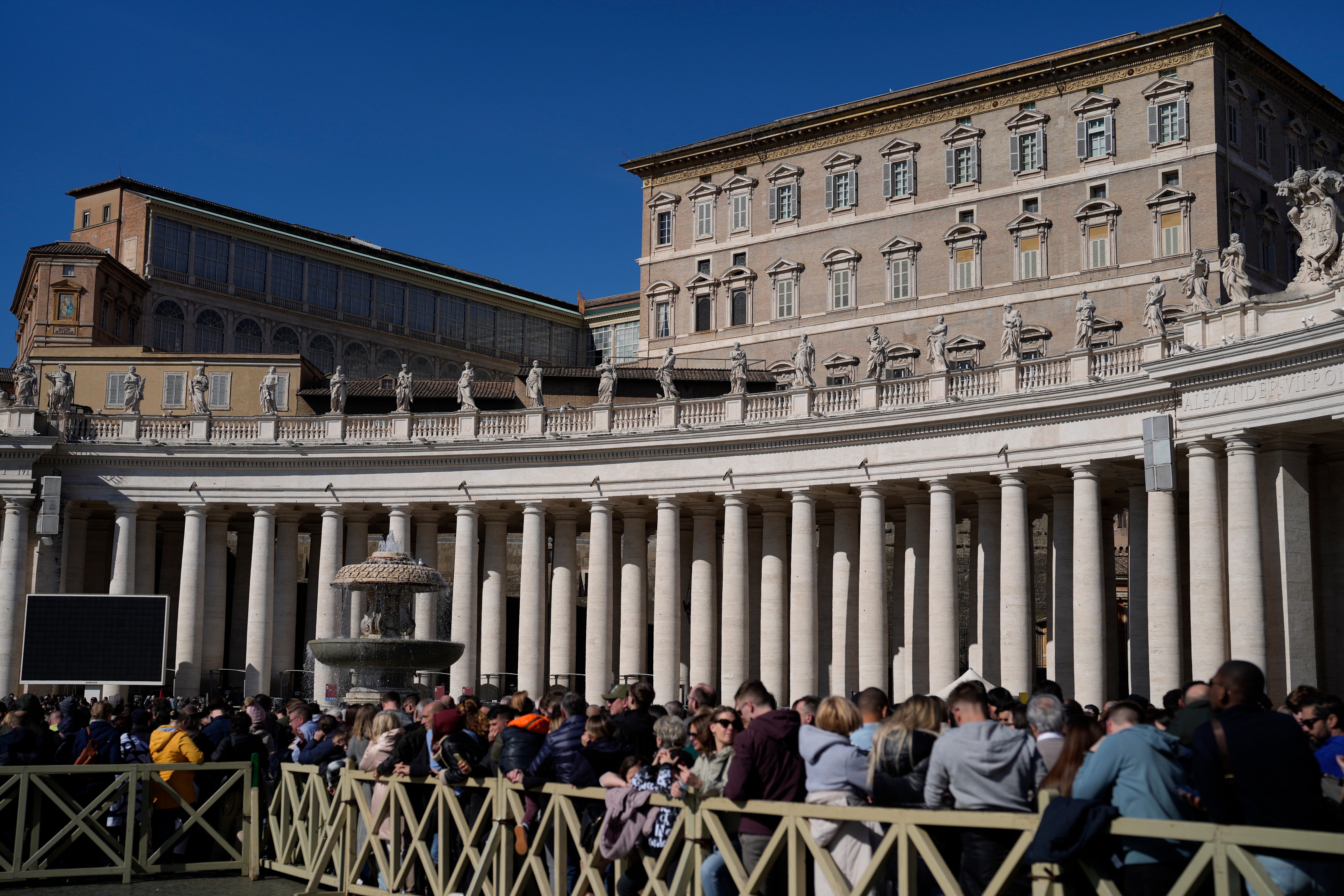Pope Francis, the first Latin American leader of the Catholic Church and a pontiff who charmed the world with his humble style and concern for the poor, died on Monday aged 88.
He had suffered a serious bout of double pneumonia in recent weeks but his death came as a shock, hours after he greeted crowds while being driven around St Peter’s Square on Easter Sunday and after a private meeting with the US vice-president, JD Vance.
The Vatican said he had died from a stroke and subsequent heart failure.
Cardinal Kevin Farrell, a trusted aide, said: “His entire life was dedicated to the service of the Lord and of his Church.
“He taught us to live the values of the Gospel with faithfulness, courage, and universal love, especially for the poorest and most marginalised.
“With immense gratitude for his example as a true disciple of the Lord Jesus, we commend the soul of Pope Francis to the infinite, merciful love of God, One and Tribune.”

As the sun set over St Peter’s Square on Monday, Cardinal Mauro Gambetti led a prayer in commemoration.
Francis’s coffin will be moved from the chapel of the Domus Santa Marta hotel where he lived to St Peter’s Basilica as early as Wednesday morning to allow the faithful to pay their respects. In a change ordered by Francis, the body will no longer be placed on an elevated bier in the basilica. Rather, the wooden coffin will be placed facing the pews.
No date has yet been set for the funeral.
Francis, who suffered from chronic lung disease, was admitted to Rome’s Gemelli hospital on 14 February for a respiratory crisis that developed into double pneumonia. He spent 38 days there, the longest hospital stay of his papacy.
Tributes for him poured in from around the world, with many leaders praising his humility, dedication and teachings. His native Argentina ordered seven days of mourning, as did neighbouring Brazil.
King Charles and Queen Camilla, who had visited the Pope on an official trip to Italy earlier this month, said they were “deeply saddened”.

“But our heavy hearts have been somewhat eased, however, to know that His Holiness was able to share an Easter greeting with the Church and the world he served with such devotion throughout his life and ministry,” the King said.
“The Queen and I remember with particular affection our meetings with His Holiness over the years and we were greatly moved to have been able to visit him earlier in the month.”
Sir Keir Starmer described Francis as a courageous leader who reached out to people of all beliefs during a “complex and challenging time”.
“He was close to the realities of human fragility, meeting Christians around the world facing war, famine, persecution and poverty. Yet he never lost hope of a better world,” the prime minister said.
Donald Trump paid tribute to the pontiff in a post on Truth Social as news of the death emerged.
“Rest in Peace Pope Francis! May God Bless him and all who loved him!” he wrote on his social media platform.

Italy’s prime minister, Giorgia Meloni, said: “I had the privilege of enjoying his friendship, his advice and his teachings, which never failed even in moments of trial and suffering.”
French president Emmanuel Macron said the Pope had wanted the Church “to bring joy and hope to the poorest” and unite the world.
“Pope Francis was the rare leader who made us want to be better people,” former US president Barack Obama and his wife, Michelle. “He shook us out of our complacency and reminded us that we are all bound by moral obligations to God and one another.”
Gianni Infantino, president of football world governing body Fifa, noted the pope’s love for the game and said that “all the prayers of the whole football world are with him”.
Italian president Sergio Mattarella said Francis’s final public act, an Easter Sunday blessing and Popemobile tour through a crowd of thousands in St Peter’s Square, in retrospect seems like his final goodbye to the Church.
At the Vatican, locals, tourists and pilgrims visiting for Easter expressed their shock and grief. Shortly after noon, the bells of St. Peter’s Basilica began tolling to mark Francis’s death.

“This is something that really hits you hard,” said Emanuela Tinari, from Rome. “He was a pope who brought so many people closer to the Church. He was not appreciated by everyone. But he definitely was by ordinary people.”
Francis, who was born in the Argentine capital Buenos Aires as Jorge Mario Bergoglio, became the first person from the Americas to take the role after succeeding Benedict XVI in 2013.
Gaining a chemical technician’s diploma, he had spent several years as a food technician and also worked as a bouncer and janitor.
In 1958, he joined the Society of Jesus, known as the Jesuits. He climbed the ranks within the Argentine Church before being made a cardinal by Pope John Paul II in 2001.
After the resignation of Pope Benedict XVI, Pope Francis was elected in the fifth round of voting in a papal conclave, the process by which a new pope is selected.

He was credited for adopting a less formal approach to the papacy. After his election, he took a bus back to his hotel rather than being driven in the papal car, before he visited a cardinal in hospital the next day, where he chatted with patients and staff.
Pope Francis was willing to engage more women in senior roles within the Catholic Church and had long argued that the Church should be sympathetic to the LGBT+ community – while calling for the decriminalisation of homosexuality around the world.
The pontiff had also been a critic of unshackled capitalism and put climate change action front and centre of much of his papacy.
He inherited a Church torn by infighting in the Vatican bureaucracy, and – having been elected with a clear mandate to restore order – he struggled to get a grip on the crisis over sexual abuse by clerics.
The Women’s Ordination Conference – a feminist voice within the Church – said Francis’s death is “a profound loss for the church and the world” but noted it had been frustrated by Francis’s unwillingness to push for the ordination of women, calling it “painfully incongruous with his otherwise pastoral nature”.
It added that “this made him a complicated, frustrating, and sometimes heartbreaking figure for many women”. It had long prayed that Francis would be transformed by the testimonies of women sharing their sincere calls from God to ordained ministry, but “when it came to the topic of women in ministry, he seemed stuck in bad theology and outdated tropes”.
On the international stage, Francis played a crucial diplomatic role in a tumultuous decade, weighing in on the Israeli-Palestinian conflict, Russia-Ukraine war, the plight of refugees worldwide, and notably in the restoration of US-Cuban relations in 2014.
He also called on countries in the West to significantly increase the number of refugees they took in. Responding to Donald Trump’s plan to build a wall with Mexico in 2016, the Pope said: “A person who only thinks about building walls, wherever they may be, and not building bridges, is not Christian.”
The Vatican said a ceremony planned for Sunday, 27 April, when Carlo Acutis was to become the first Catholic saint of the millennial generation, has been postponed.
Pope Francis latest: Pontiff died of stroke and heart failure, Vatican says
Gaza’s Christians ‘heartbroken’ after death of Pope Francis who phoned them nightly
How the papal conclave elects a new pope
Catholics mourn ‘merciful’ Pope after death aged 88 following stroke
Pope Francis death: The elaborate rituals of a papal funeral
Who could be the next Pope? Cardinals who might succeed head of the Catholic Church







